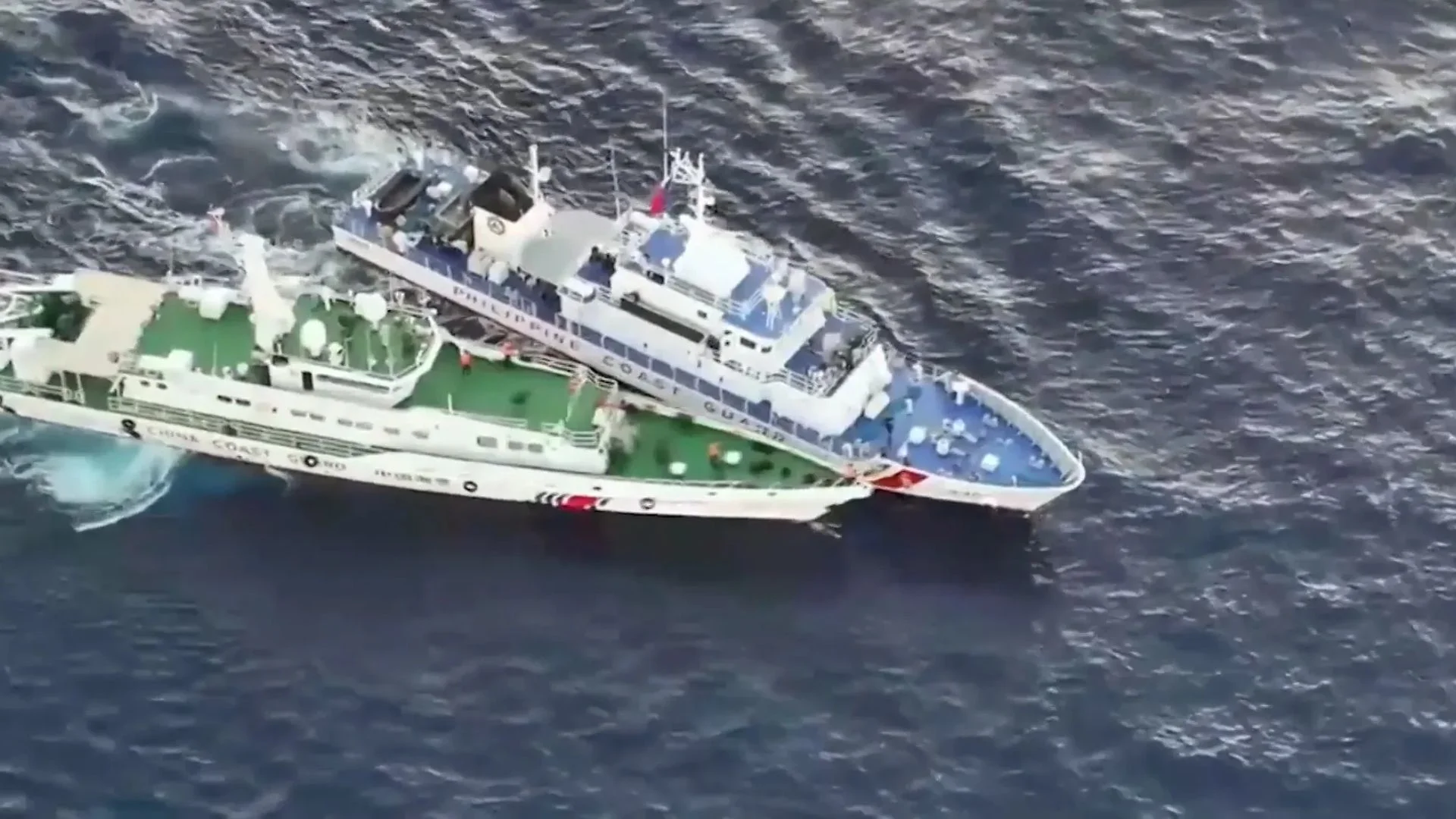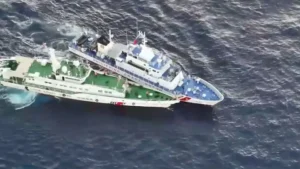Collision at Sabina Shoal
A confrontation between Chinese and Philippine vessels in the disputed South China Sea led to a collision early Monday morning, with both sides blaming each other for the incident. The collision occurred at 3:24 am local time near Sabina Shoal, approximately 140km west of Palawan, a major Philippine island. The Spratly Islands, where the incident took place, are also claimed by Brunei, Malaysia, Taiwan, and Vietnam.
Conflicting Accounts from Beijing and Manila
China’s Coast Guard spokesperson, Gan Yu, accused the Philippines of illegally entering the waters around Sabina Shoal and deliberately colliding with a Chinese ship. In response, Manila’s National Task Force on the West Philippine Sea asserted that Chinese vessels were at fault, engaging in unlawful and aggressive maneuvers that caused structural damage to two Philippine Coast Guard ships. The Philippine vessels, Cape Engano and Bagacay, were reportedly en route to resupply personnel stationed on Flat Island at the time of the collision.
Rising Tensions in the Region
This incident comes amid heightened tensions between Manila and Beijing over territorial claims in the South China Sea. The Sabina Shoal collision follows an air incident between the Chinese and Philippine militaries near Scarborough Shoal earlier this month. The Philippines has expressed its commitment to protecting its maritime domain, while China continues to assert its extensive claims under the contested nine-dash line, despite a 2016 international court ruling against it.












